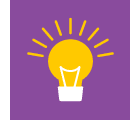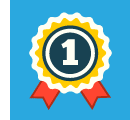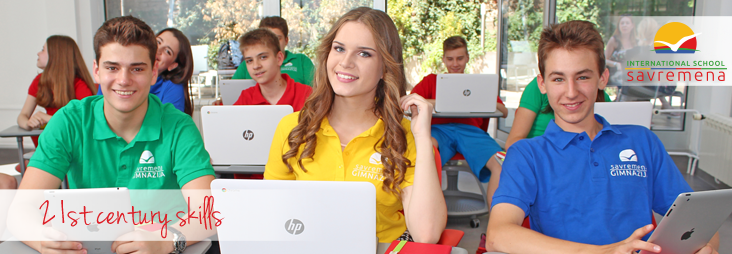8 skills a 21st century student should master at school
While in the early 1900s reading, writing and arithmetic rendered one literate, today, in the modern digital age, it takes information and media literacy - critical, problem-based thinking, teamwork, and technological savvy - in order for a person to be considered literate.
To be educated and successful, and to thrive in the digital economy, a student needs to possess the skills of the digital age. This is why it is crucial for a school and the educational system, to teach these skills along with imparting high-quality knowledge as well as a a proper value system.
What skills are required for success in the 21st century?
1. Digital-age literacy

“The illiterate of the 21st century will not be those who cannot read and write, but those who cannot learn, unlearn, and relearn.” – Alvin Toffler.
When it comes to information, the sheer quantity thereof stored in one’s head, and the way it got there, are no longer all that important - what matters is what you do with it. This means that in order to become successful, students need to be able to analyse, access, manage, integrate, evaluate and create information in different media, which implies information and media literacy.
2. Communication
Communication is the basis of any successful cooperation, but it needs to be bi-lateral and with sufficient feedback. In this communications era of ours, which is called that way for a reason, the forms, the channels and the means of communication are ever more numerous.
It is therefore necessary that the possibilities regarding the expression and the creation of the content that will be exchanged in said communication processes follow the development of the means and are enriched in equal measure.
And this depends solely on the adoption of the knowledge and skills needed for expressing, writing, communicating; designing and sending the right message.
3. Cooperation
Unlike the dawn of capitalism, where individuality used to play the main role in social development and success of an individual, in modern society it has surrendered its leadership position to teamwork.
The governing principle is that only by working together, exchanging ideas and knowledge, and combining their abilities, people can achieve great results.
It is therefore very important to - from the earliest age, and especially through secondary school, which constitutes a preparation for full immersion into the the grown-ups’ world - develop the skills of cooperation, establishing communication, healthy exchange of opinions and ideas, proper resolving of conflicts, and achieving a compromise.
4. Creativity
For creation, which is the highest level of learning, besides mastering other levels of knowledge, one, of course, needs to have a healthy dose of creativity. Creativity means discovering new connections, relations, and possibilities of matching already familiar elements, in order to create something new.
If we want to enable children to be successful, we must nourish and cherish their creativity; different ways of thinking and looking at the world and finding new approaches to problems and tasks.
We should by no means try to make them “fit the mould” and instil into them the same behavioural patterns. The role of the school is in this context of paramount importance.
5. Inventive thinking - intellectual capital
Before anything else, invention implies creativity, good ideas and curiosity, leading one to creation.
This means that not only should students have a well-developed imagination and critical-thinking skills, but they should also be able to assess the circumstances in which the idea in question occurred and the possibilities regarding its realisation, as well as possess the ability to adjust in the best possible way.
6. Problem-based thinking and problem solving
Problem-based thinking is considered the most complex of all intellectual functions. It starts from the assumption that knowledge is not adopted for the sake of mere learning and getting good grades, but that said knowledge needs to be “put to work”, applied to solving concrete tasks, situations or problems.
And this, in turn, requires that the knowledge from different areas be connected and put into the service of finding a solution.
This is why teachers must transfer these very kinds of knowledge adoption models; teach them that the important thing is not which grade they are going to get, but how and where they can apply what they have learned: what they can create from their knowledge.
7. Value system and responsibility
Education never is, nor should it ever be, an independent process - it always goes hand in hand with upbringing. One of the most important functions of schools is “shaping” fine, well-mannered young people, whom it will help develop a proper value system and enable them to grow into persons of integrity.
Nowadays, in our complex technology-driven and networking-based age, a proper value system and ethical conduct have become more important than ever.
It is vital to instill good values into students so that they are able to use all the tools and technologies at their disposal whilst being aware of the responsibility that comes with using them.
8. Quality, top results and productivity
Studies have shown that good test results are unrelated to later productivity in life. Although schools do not insist much on productivity, it is directly related to good results, success, and progress in every sense.
In order for the students to achieve the level of quality required by the modern age, they must know how to use the possibilities and advantages of the digital tools and technologies at their disposal, as well as to properly prioritise, plan, and adopt new knowledge.
How do students develop 21st century skills at Savremena Gimnazija?
For all these reasons, Savremena’s students finish their education with all the skills we have discussed, and become fully prepared to face the adult world. The modern concept of education implemented here implies the integration of knowledge and skills into a holistic approach to students’ intellectual development.
Besides specialised knowledge, which Savremena Gimnazija imparts throughout its four-year education programmes for the purpose of preparing students for university, students develop all of the 21st century skills, which prepare them for life itself and make them the students of the 21st century.
Thanks to a modern and different approach to teaching, we develop the students’ creative and critical thinking. Students at Savremena Gimnazija use modern technologies in their daily activities and studying and they do it efficiently, responsibly, and in the service of creation. This is why they are familiar with all the possibilities of communication that technology brings about, and it is quite simple fot them to master all its new attainments, for the very purpose of advancing communication and cooperation.
Despite its modern orientation, our students adopt traditional values i.e. they are taught how to use technology and scientific tools in a responsible way and how to successfully cooperate with their peers and teachers. Those are all the things that make the them learners, as well as future leaders, for the 21st century.


























